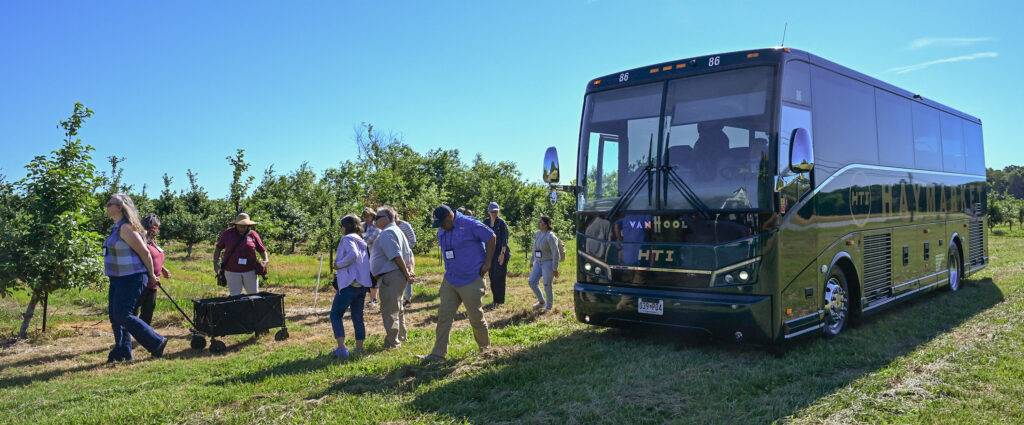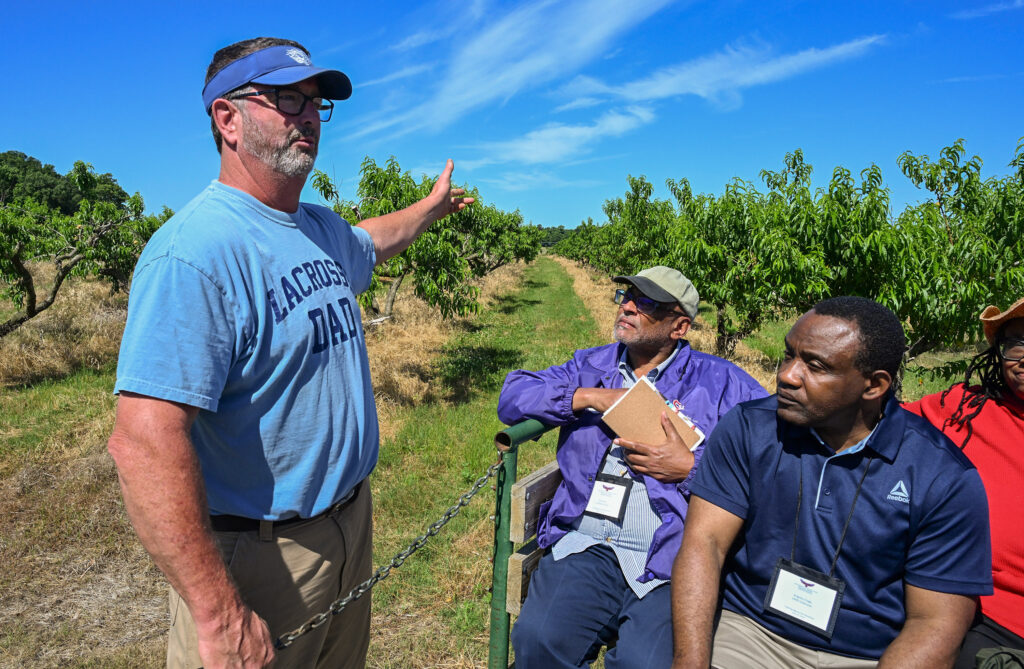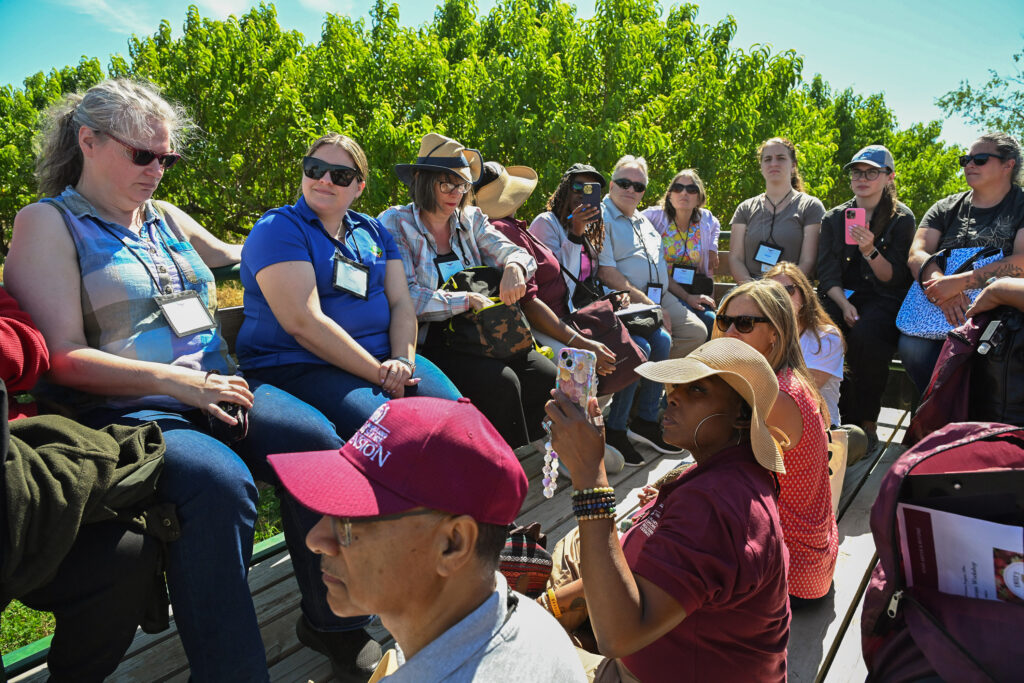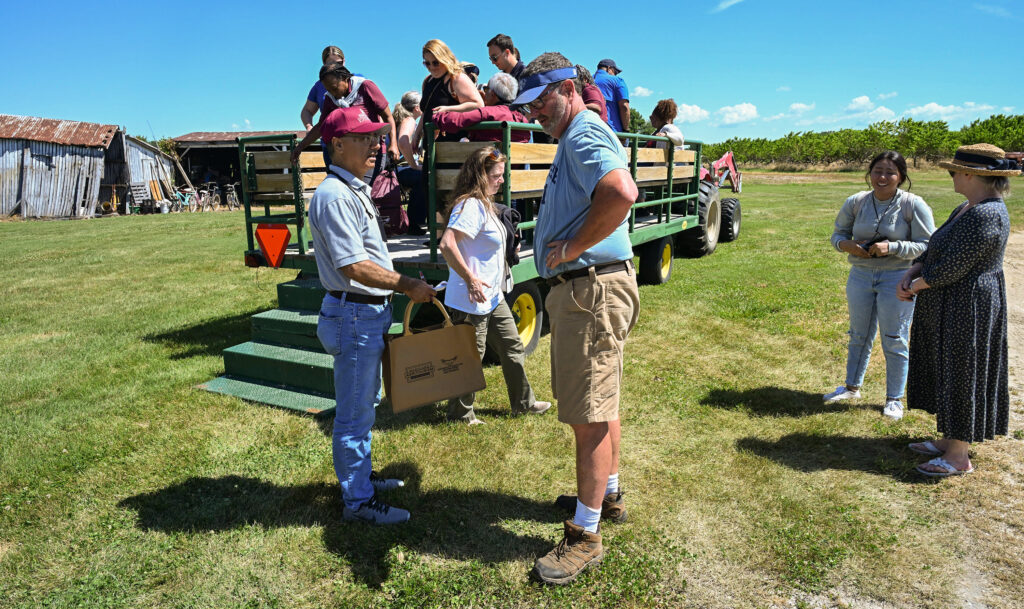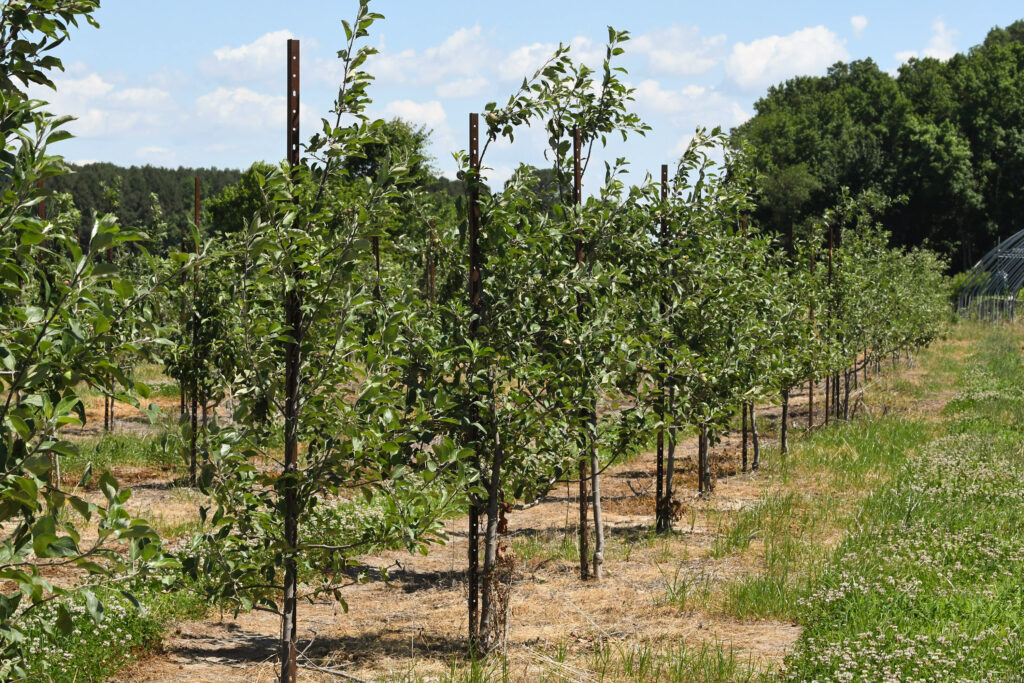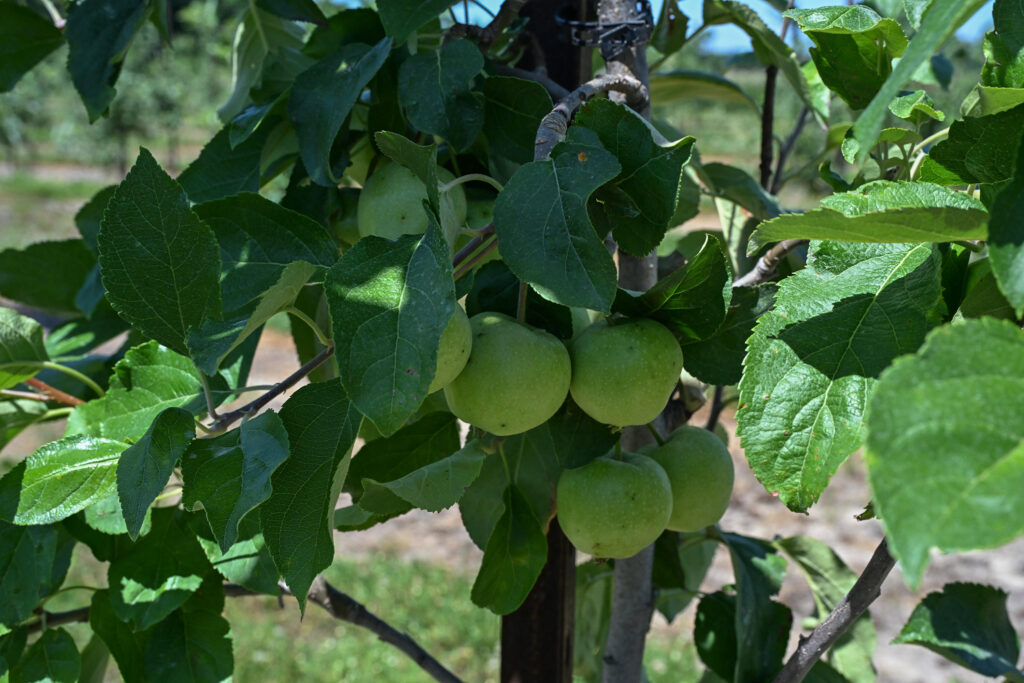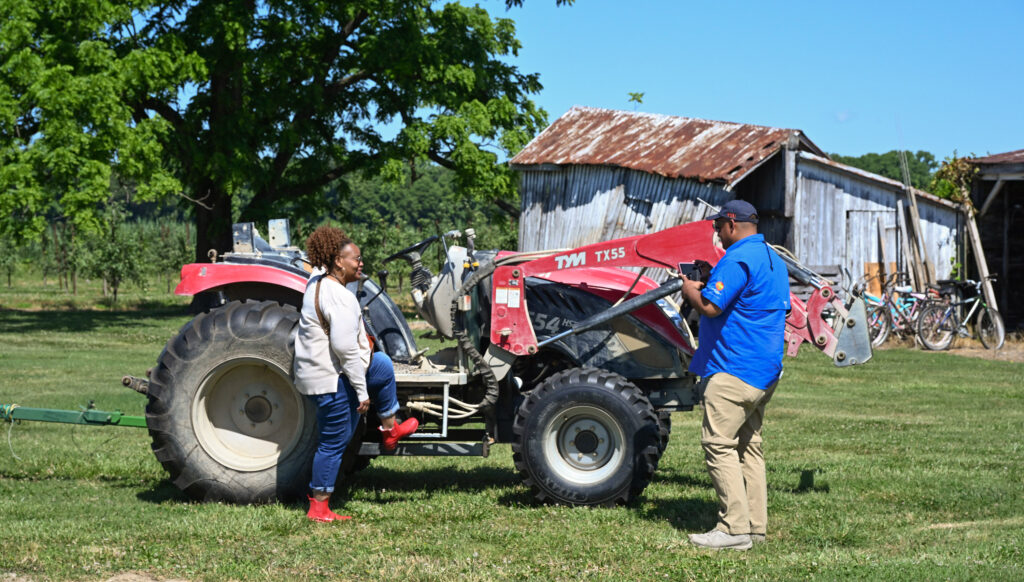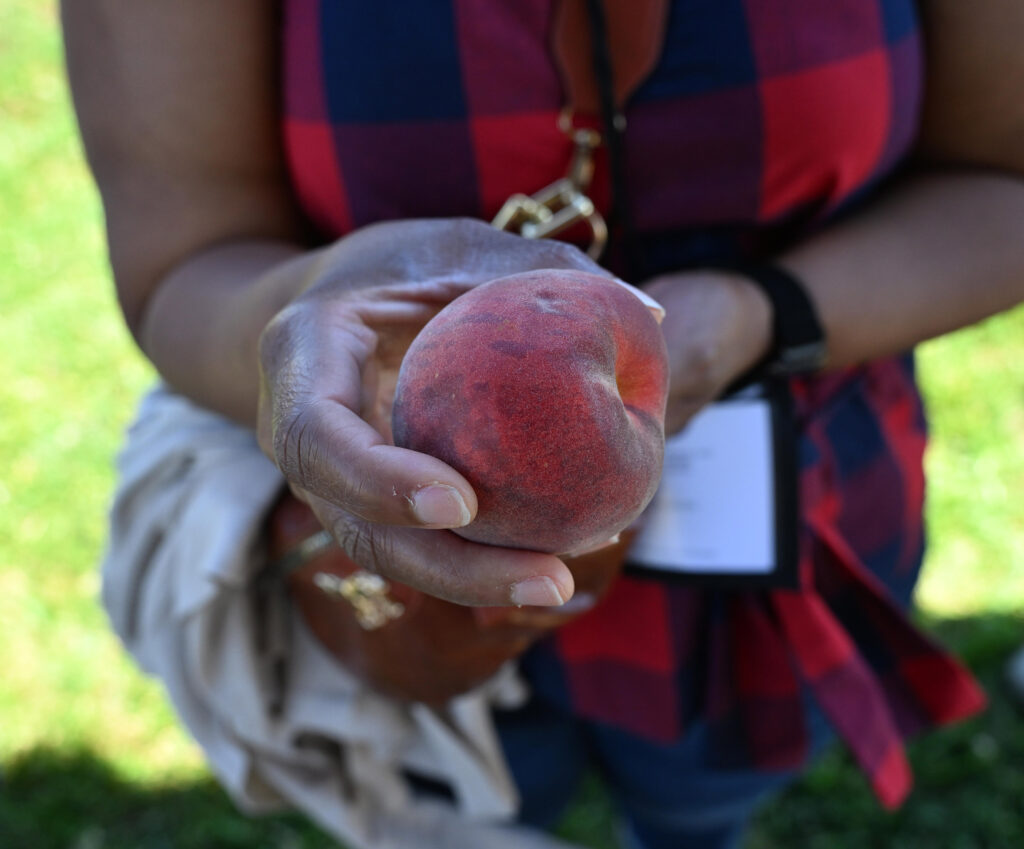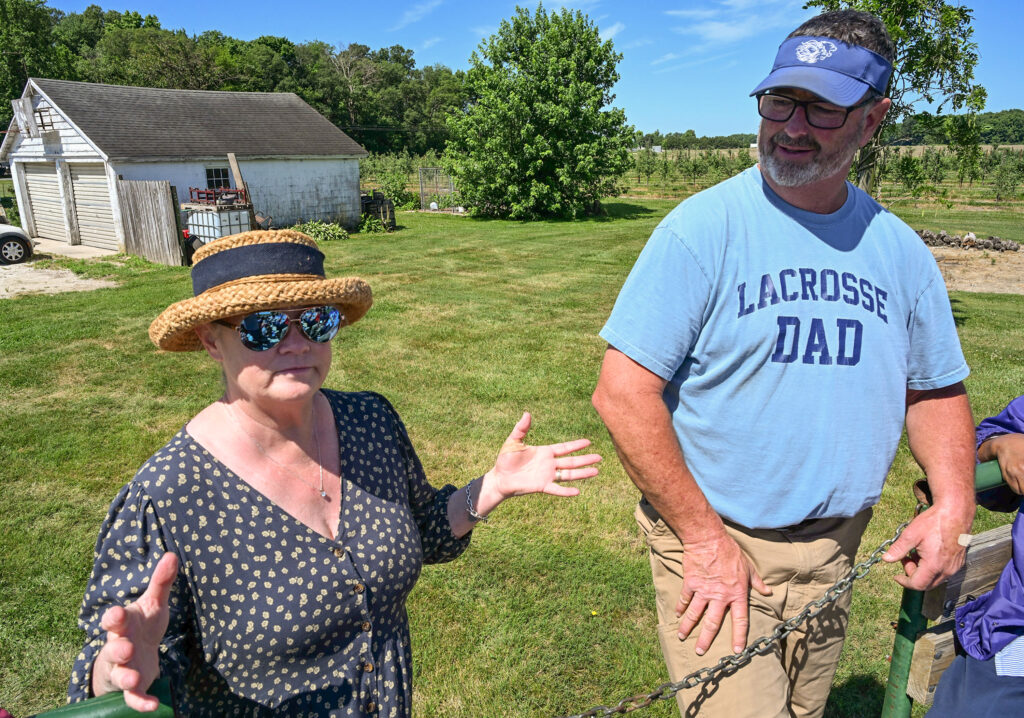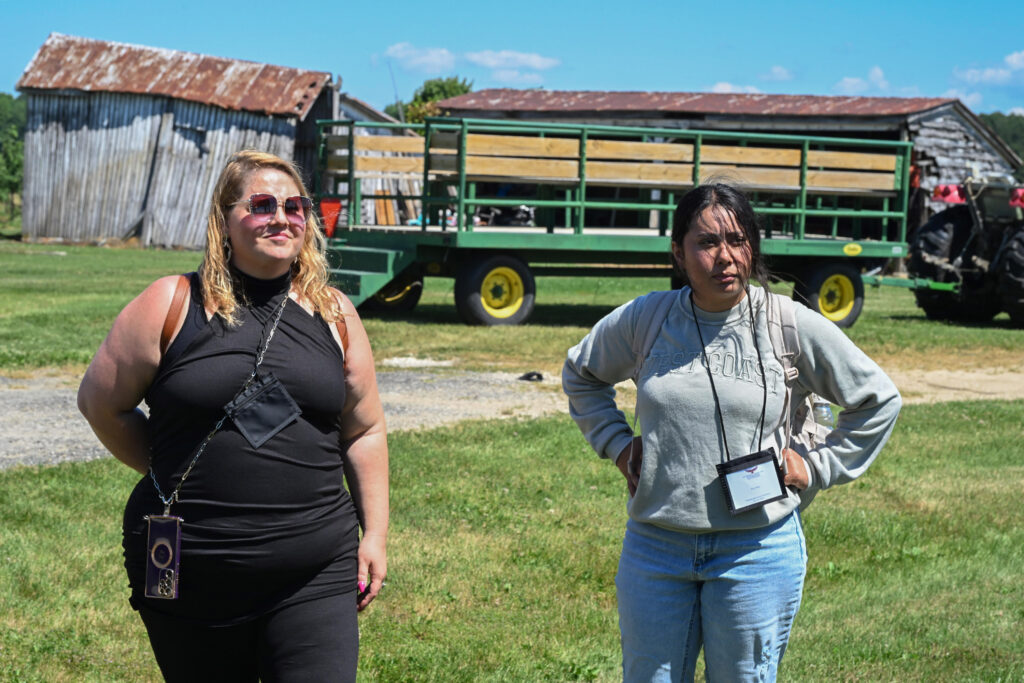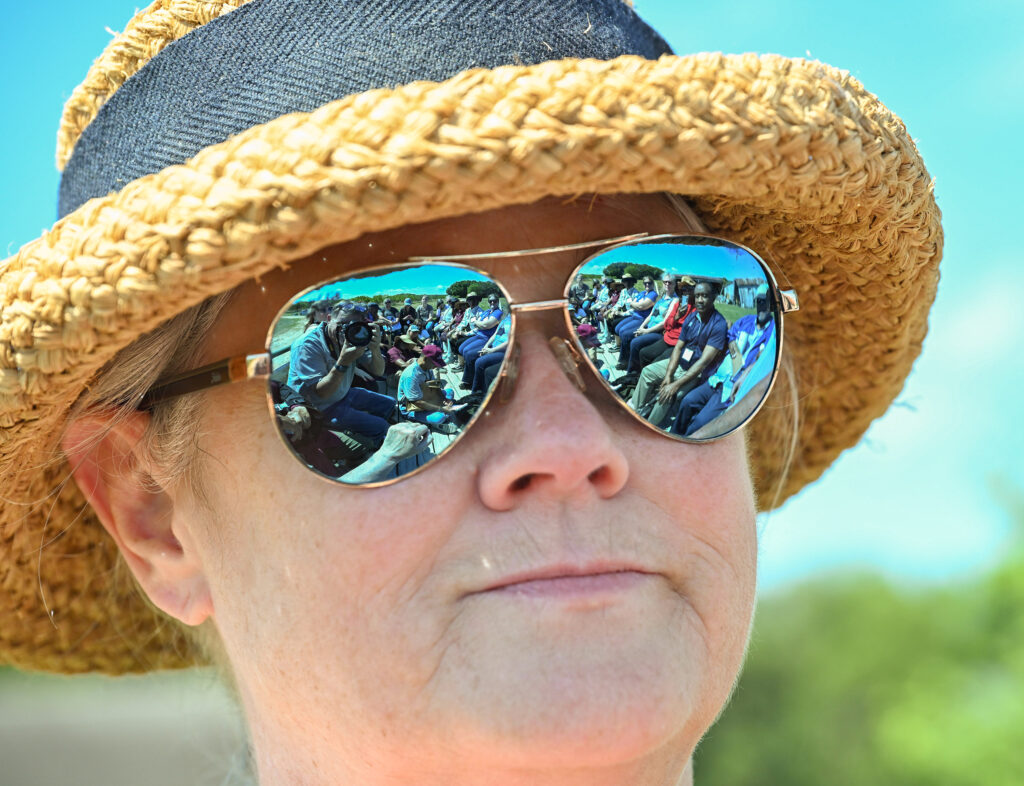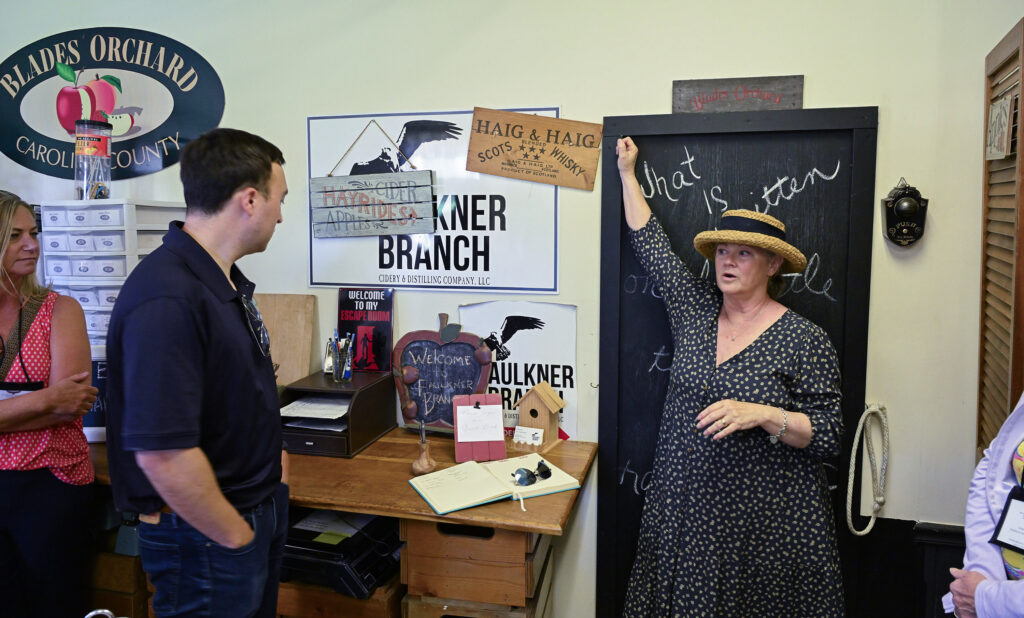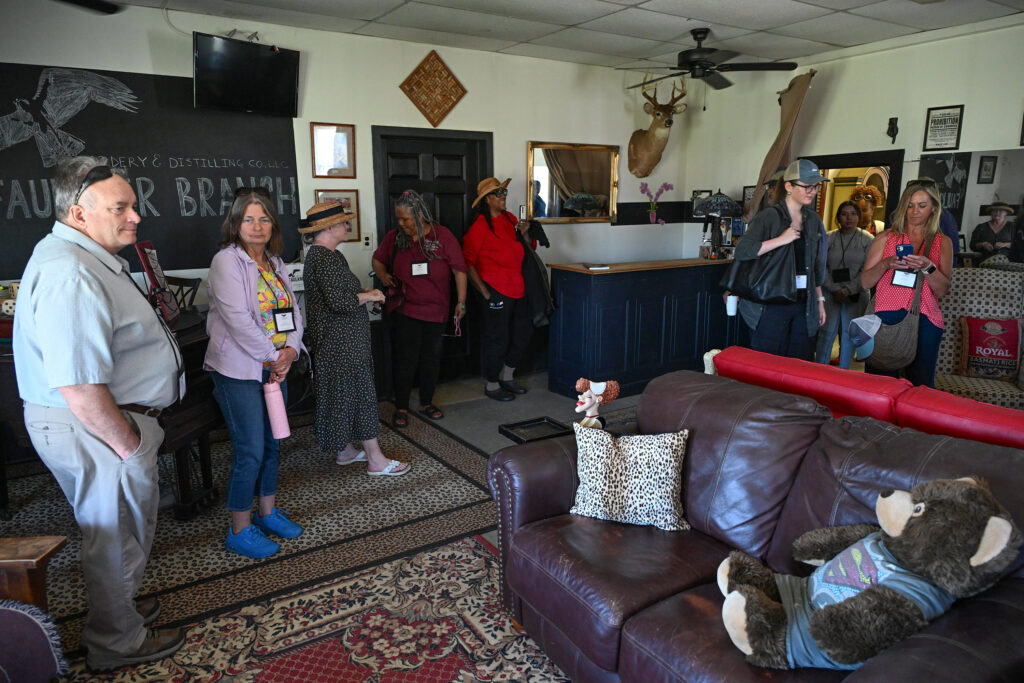For Blades Orchard, reinvention is key to success
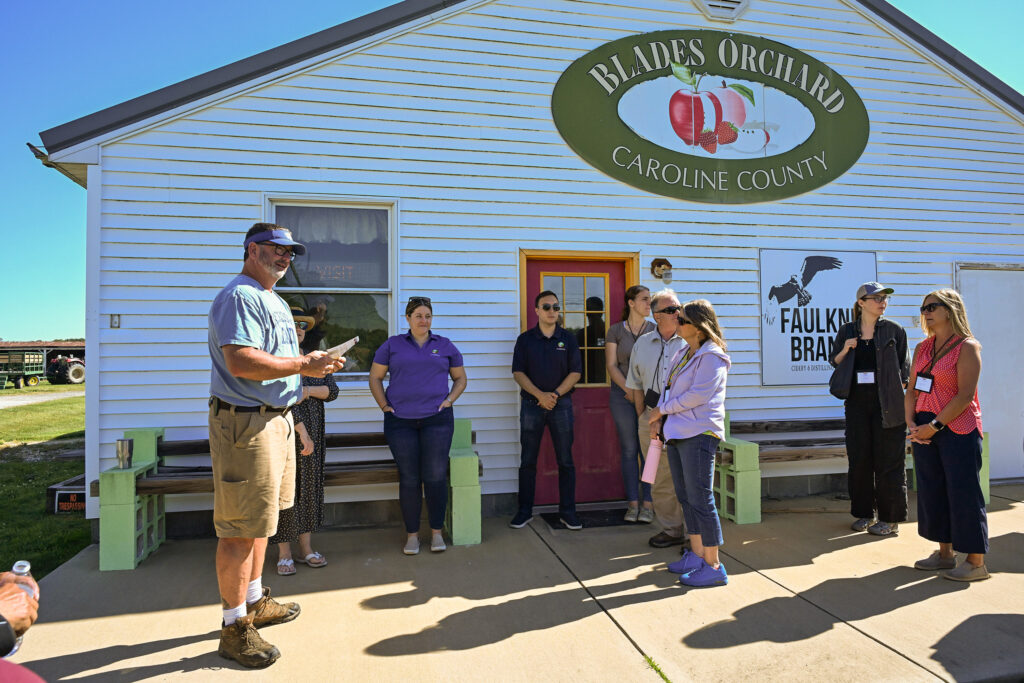
After 14 years of operating as a u-pick, the owner-operators of Blades Orchard in Federalsburg, Maryland, shifted their agribusiness model. They now offer their fruit and value-added products at farmers markets, a CSA and pre-order online sales for pick up at the farm by appointment.
Why? Steve and Linda Blades, like any agricultural producer, are not keen on losing product. They found that with the u-pick, they were experiencing more loss than they wanted.
“Once the apples hit the ground, we can’t use them,” Steve ( far left) said. “Some people would pick too much and then dump them.”
Likewise, they’ve learned that peaches need to be picked first thing in the morning before the heat of the day.
“If it’s too hot, the skin starts to slip on them and they don’t pack well,” he said. “You end up losing more than if you waited until the next day to harvest.”
Live and learn, and keep reinventing yourself if needed, is a theme often heard during conferences and events such as the UMES Extension Traveling Agritourism Workshop June 10 in Dorchester and Caroline counties in Maryland.
Around 30 attendees loaded a farm tour wagon to learn about the couple’s 65-acre orchard. The Blades harvest six varieties of apples (Arkansas Black, EverCrisp, Fuji, Gold Rush, Pink Lady and Stayman) in addition to peaches, cherries and other seasonal fruit.
Nairobi Simmons, an aspiring small farmer from Portsmouth, Virginia, learned “something I didn’t know.”
“I’m new to the ag world and liked hearing about produce; how to grow it; and what to put on it (fertilizer and pesticides),” she said. “It was interesting to learn how long it takes for a tree to produce fruit and about pollination.”
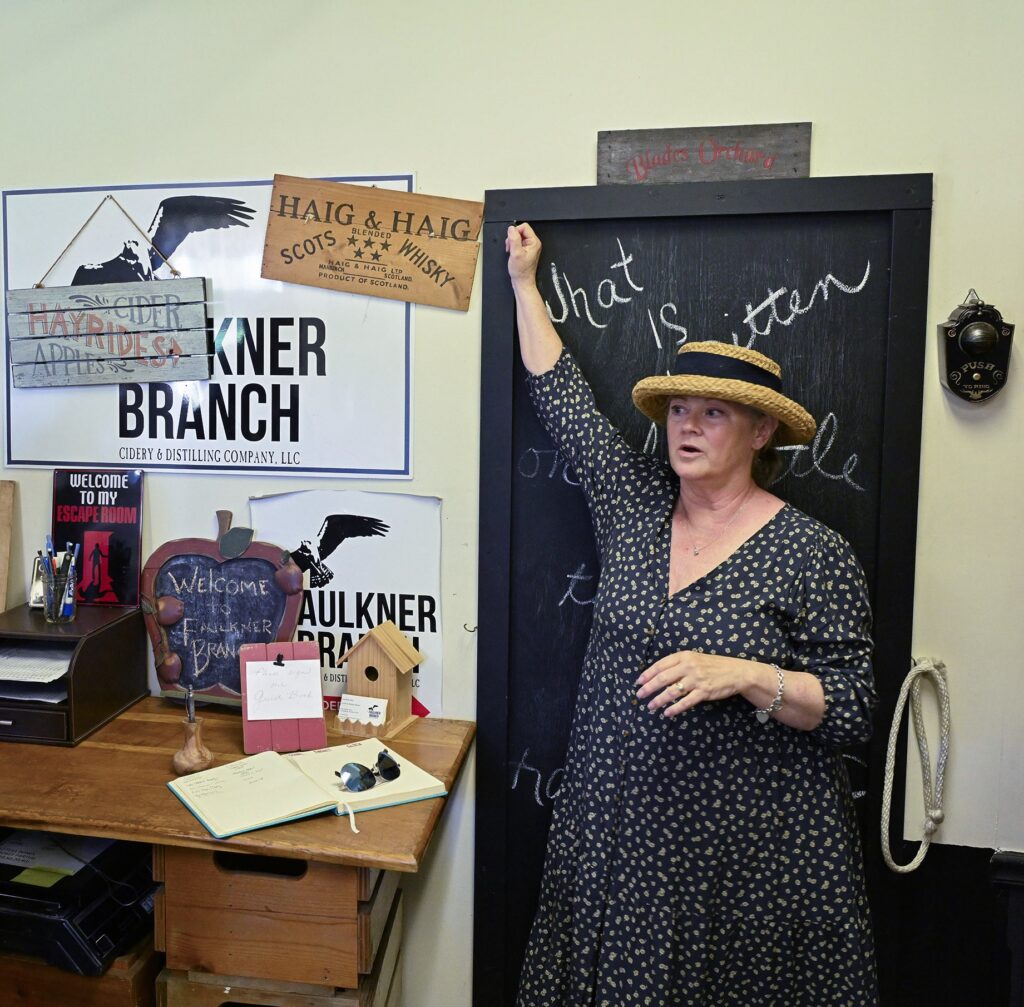
Steve explained, for instance, how Gold Delicious apples are universal pollinators. They are self-pollinating, but can also cross-pollinate with other apple trees, which can increase fruit production. He also explained the life-cycle of fruit trees and crop rotation for soil health.
“We’ll put in an agricultural crop for two years and then a cover crop like rapeseed, forage radish or wheat, which will get tilled over every year,” Steve said. “We find it helps with the nematodes that build up over the years.”
Steve’s expertise on fruit production, tree care and other arborist support is available as an educational component of their agribusiness.
Another way the Blades are diversifying their business for success still includes an agritourism element. They have a speakeasy-style venue (at right) that can be rented for up to 75 guests. Their Faulkner Branch Cidery produces a variety of hard ciders that can be purchased at local farmers markets along with their apple cider, apple butter, apple sauce and apple cider donuts in season.
Workshop participants like Christine Little of A Little Farm and Nursery in Stevensville, Maryland, came looking for ideas. She sells trees and flowers at the garden nursery and farm. A summer “Storytime on the Farm” for youth, including a craft and snack, was added as a weekly agritourism idea on Thursdays.
“It was good to see the different set up and business model other farmers have,” Little said. “The Agritourism bus tour was a way for me to see if I can add to my farm.”
It doesn’t take a lot of acreage to be successful, Linda Blades (at right, above) said.
“We know people that have 2 acres and they’re killing it,” she said. “If you have the wherewithal and get the planting down, you can do it.”
Gail Stephens, agricultural communications, University of Maryland Eastern Shore, School of Agricultural and Natural Sciences, UMES Extension, gcstephens@umes.edu, 410-621-3850.
Photos by Todd Dudek, agricultural communications, University of Maryland Eastern Shore, School of Agricultural and Natural Sciences, UMES Extension, tdudek@umes.edu.

